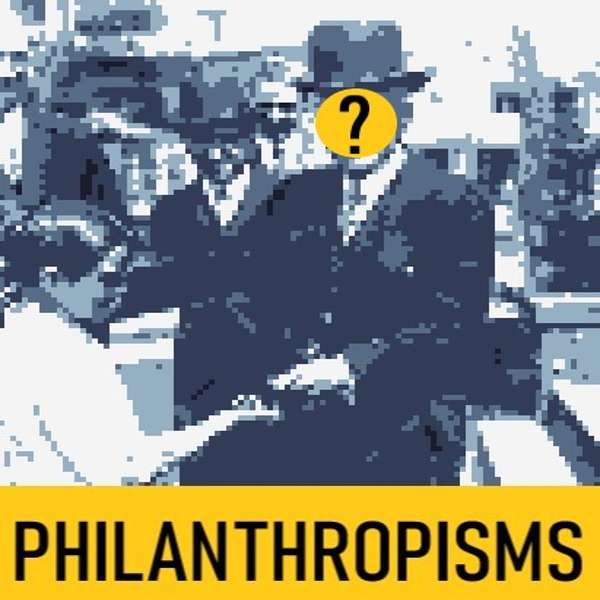
Philanthropisms
Philanthropisms is the podcast that puts philanthropy in context. Through conversations with expert guests and deep dives into topics, host Rhodri Davies explores giving throughout history, the key trends shaping generosity around the world today and what the future might hold for philanthropy. Contact: rhodri@whyphilanthropymatters.com.
Philanthropisms
Emma Beeston & Beth Breeze - Advising Philanthropists
•
Rhodri Davies
•
Season 1
•
Episode 32
In this episode Rhod talks to philanthropy adviser Emma Beeston and academic Dr Beth Breeze about their new book Advising Philanthropists. Including:
- What are some of the key elements of philanthropy advice?
- How much is philanthropy advice about objective, technical things (e.g. tax, structures etc) and how much is it about subjective things (about finding purpose, understanding values etc)?
- At what stage in their ‘philanthropic journey’ are donors most likely to seek advice?
- Where do donors tend to get philanthropy advice from? What impact does the source of the advice have on the nature of the advice?
- Is philanthropy advice normally a one-off or time limited service, or an ongoing relationship?
- To what extent do advisers see their role as neutral agents servicing the demands of donors vs active agents challenging them/shaping their approach?
- What factors make for a successful donor/adviser relationship?
- What does “success” look like for a philanthropy adviser? (i.e. more giving, ‘better giving’, both?)
- What are some of the biggest challenges/frustrations for philanthropy advisers?
- How common is it for private banks/wealth management firms to offer philanthropy advice?
- When they do, is this seen as a business proposition (i.e. by increasing client retention, strengthening relationships etc), or part of the company’s social responsibility?
- What are the core skills you need to be a philanthropy adviser?
- What is the relationship like between philanthropy advisers and fundraisers? Do the latter see the former as useful points of contact with wealthy donors, or unhelpful gatekeepers?
- What role can philanthropy advisers play in helping to manage the transfer of wealth between generations?
- Are there any signs that next gen donors are more or less willing to seek advice on their giving?
- Are next gen donors looking for the same kind of advice as previous generations or different kinds?
- How much power do advisers have to shape donor’s giving?
- Does this bring responsibilities (e.g. to be transparent about who they are, and what role they play?)
- How many advisers see it as part of their role to make donors aware of critiques of philanthropy and offer them ways of addressing them?
Related Links:
- Emma and Beth's book Advising Philanthropists
- The University of Kent Centre for Philanthropy Masters in Philanthropic Studies (where, if you enrol, you can get taught by Beth, Emma and me!)
- Beth's book In Defence of Philanthropy
- Emma's website
- Emma on the Charity Impact Podcast with Alex Blake
- Emma and Beth's guest article for Inside Philanthropy "Lifting the Curtain on Philanthropy Advising"
- Emma's blog for DSC, "Shedding some light on philanthropy advising"
- Rhod's WPM article "You’re the Philanthropist Now!: A roll-your-own adventure"